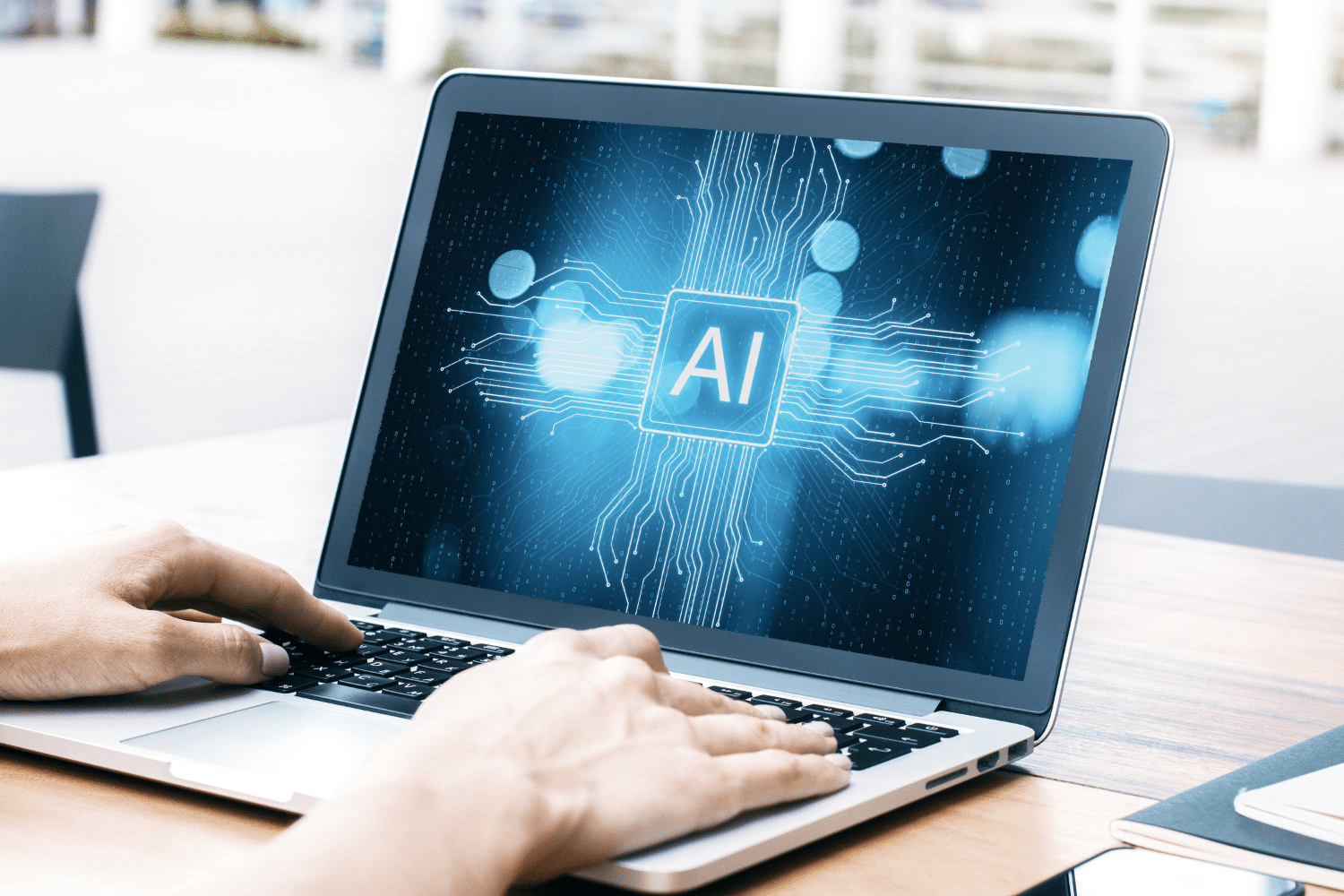Curious about an artificial intelligence career? This field is exploding with roles like AI engineer and data scientist. In this article, you’ll discover the top AI career paths, essential skills, and steps to secure a role in this exciting industry. Let’s explore why an artificial intelligence career might be right for you.
Key Takeaways
- The AI job market in 2024 offers diverse high-demand roles such as AI engineers, machine learning engineers, data scientists, and AI researchers, all of which command impressive salaries and involve working on cutting-edge technologies.
- Critical skills for success in AI careers include proficiency in programming languages (Python, Java, Scala), data analysis and modeling, and knowledge of machine learning and deep learning techniques.
- Pursuing strong educational pathways such as a bachelor’s degree in computer science, AI-focused certifications, and advanced degrees, alongside gaining practical experience through internships, freelance projects, hackathons, and portfolios, are essential steps for landing and excelling in AI jobs.
Top Artificial Intelligence Career Paths

The AI job market in 2024 is brimming with opportunities across various roles, each offering unique challenges and rewards. Some of the in-demand roles in the AI field include:
- AI engineers
- Data scientists
- Machine learning engineers
- AI researchers
- AI consultants
These roles not only command impressive salaries but also provide the chance to work on cutting-edge technologies that are shaping the future.
We’ll examine the various AI career paths, detailing the responsibilities, required skills, and potential earnings associated with each role. This will give you a clear picture of where you might fit in this dynamic and rapidly growing field.
AI Engineer
AI Engineers are at the forefront of developing applications and systems that leverage AI and machine learning techniques to solve real-world problems. Their work involves creating tools, systems, and processes that enhance organizational efficiency and effectiveness. The average salary for an AI Engineer is around $113,000, reflecting the high value and demand for their expertise.
These professionals need a robust understanding of programming languages, data science, and software development. They work closely with other technical teams to deploy AI solutions that adhere to ethical guidelines and ensure responsible use of AI technologies.
Machine Learning Engineer
Machine Learning Engineers specialize in:
- Designing models and algorithms that enable machines to perform tasks without explicit programming
- Organizing data
- Testing models
- Ensuring the scalability of machine learning systems
The average salary for a Machine Learning Engineer is $165,685, making it one of the best-paying roles in the AI sector.
These engineers require strong mathematical skills, experience with neural networks, and proficiency in programming languages like Python, Java, and Scala. They work closely with data scientists to build and maintain AI systems that can handle real-time data and improve over time.
Data Scientist
Data Scientists play a crucial role in the AI ecosystem by:
- Analyzing vast amounts of data to answer questions and make predictions
- Developing models using programming languages
- Identifying patterns in data sets
- Communicating their findings to stakeholders
The average salary for a Data Scientist is $127,000, reflecting the critical nature of their work.
These professionals need strong analytical skills, experience in data modeling, and proficiency in machine learning techniques. They often work with other AI professionals to develop predictive models that can drive business decisions and improve operational efficiency.
Robotics Engineer
Robotics Engineers are responsible for designing and developing robotic systems that can perform tasks autonomously or semi-autonomously. They work across various industries, from manufacturing to healthcare, to create robots that enhance productivity and safety. The average salary for Robotics Engineers ranges from $87,000 to $130,000.
These engineers collaborate with AI developers to integrate intelligent systems into robotic applications. They need strong programming skills, knowledge of AI technologies, and the ability to design and test prototypes that meet industry standards.
NLP Engineer
Natural Language Processing (NLP) Engineers specialize in developing systems that can understand and process human language. They work on applications like voice assistants, speech recognition, and document processing. The salary for NLP Engineers ranges from $130,000 to $208,400, highlighting the high demand for their expertise.
These engineers require a deep understanding of human language technology, machine learning, and programming. They play a critical role in making AI systems more intuitive and user-friendly by enabling them to interact with humans in natural language.
AI Research Scientist

AI Research Scientists are at the cutting edge of AI innovation, exploring new opportunities and developing advanced algorithms. They conduct experiments to test new AI methods and push the boundaries of what AI can achieve. The average salary for an AI Research Scientist is $171,630, reflecting the high level of expertise required.
These scientists need strong analytical skills, experience in machine learning and deep learning, and a background in computer science. They work on projects that can lead to significant advancements in AI technology and applications.
AI Product Manager
AI Product Managers have the following responsibilities:
- Lead the development of AI-based products
- Ensure that projects are completed successfully and meet stakeholder requirements
- Coordinate between technical teams and business leaders to align AI projects with organizational goals
The average salary for an AI Product Manager is $129,348.
These professionals need strong project management skills, an understanding of AI technologies, and the ability to translate technical requirements into business outcomes. They play a crucial role in bringing AI innovations to market.
Computer Vision Engineer
Computer Vision Engineers specialize in enabling computers to interpret and process visual information. They work on applications such as image and video analysis, facial recognition, and autonomous vehicles. The average salary for a Computer Vision Engineer is $119,659.
These engineers require:
- Strong programming skills
- Experience with machine learning and computer vision techniques
- The ability to develop algorithms that can accurately process visual data
They play a vital role in advancing technologies that rely on visual information.
Essential Skills for a Successful AI Career

To succeed in an AI career, professionals need a blend of technical skills, programming expertise, and analytical abilities. Proficiency in programming languages, data analysis and modeling, and machine learning and deep learning techniques are essential to thrive in this field.
We’ll delve into the specific skills fundamental for AI professionals and their contributions to successful AI projects.
Programming Languages
Programming is the backbone of AI development. AI Engineers, Machine Learning Engineers, and other AI professionals need to be proficient in languages like Python, Java, and Scala. These languages are essential for developing algorithms, building models, and creating scalable AI systems.
Proficiency in programming not only helps in implementing AI solutions but also in optimizing existing systems and ensuring their efficiency. Mastering these languages can significantly enhance your credentials in the AI job market:
- Python
- R
- Java
- C++
- MATLAB
Data Analysis and Modeling
Data analysis and modeling are critical for roles like Data Scientist and Machine Learning Engineer. These skills involve collecting, cleaning, and interpreting complex data sets to create accurate AI models. Effective data modeling helps improve the accuracy and efficiency of AI systems.
Professionals need to be proficient in programming languages such as Python and R to perform these tasks. They also need a strong understanding of machine learning and statistical methods to analyze trends and patterns in data sets.
Machine Learning and Deep Learning
Knowledge of machine learning and deep learning techniques is essential for developing AI models and algorithms. These techniques enable machines to learn from data and improve over time, making them crucial for the success of AI projects.
AI professionals need to be well-versed in neural networks, deep learning frameworks, and other advanced techniques. This knowledge allows them to create sophisticated models that can handle complex tasks and deliver accurate results.
Educational Pathways in AI

Pursuing a career in AI requires a strong educational foundation. Various pathways, including bachelor’s degrees, AI-focused certifications, and advanced degrees, can lead to successful AI careers.
We’ll look into the various educational pathways available and their role in preparing you for an AI career.
Bachelor’s Degree in Computer Science
A bachelor’s degree in computer science provides a solid foundation for AI careers. This degree covers essential concepts like:
- programming
- data structures
- algorithms
- machine learning
These concepts are crucial for AI roles.
Understanding the theory behind machine learning and AI systems prepares professionals to tackle complex problems and develop innovative solutions. This degree is often the first step towards a successful AI career.
AI-Focused Certifications
AI-focused certifications can significantly enhance your qualifications and showcase your commitment to continuous learning. Some certifications to consider include:
- IBM Applied AI Professional Certificate
- Microsoft Certified: Azure AI Engineer Associate
- Google Cloud Certified – Professional Data Engineer
- AWS Certified Machine Learning – Specialty
These certifications demonstrate your expertise and keep you updated with the latest advancements in AI.
Including relevant courses and certifications on your resume can make you stand out in a competitive job market, highlighting your dedication to mastering AI technologies.
Advanced Degrees
Pursuing advanced degrees such as a master’s or Ph.D. in AI-related disciplines can open doors to higher-level positions and advanced research opportunities. These degrees provide in-depth knowledge and specialized skills required for complex AI projects.
Advanced degrees also prepare professionals for roles that involve transforming raw data into valuable insights, making them indispensable in the AI industry.
Gaining Practical Experience

Practical experience is crucial for success in AI careers. Here are some ways to gain hands-on experience and enhance your skills:
- Engage in internships
- Take on freelance projects
- Participate in hackathons
- Build an AI portfolio
These opportunities will help you develop your skills and make you more competitive in the AI field.
We’ll discuss various avenues to acquire practical AI experience and their impact on career advancement.
Internships and Freelance Projects
These internships and freelance projects offer invaluable real-world experience and industry connections. Internships connect entry-level professionals with seasoned mentors, providing practical learning and industry insights. These opportunities often involve collaboration with cross-functional teams, offering a comprehensive learning experience.
Freelance projects, on the other hand, allow for flexibility and the chance to work on a variety of tasks. Engaging in freelance AI projects helps develop problem-solving and project management skills, which are essential for a successful AI career. These projects can also help build a strong professional portfolio, showcasing your hands-on experience and capabilities.
Hackathons and Competitions
Hackathons and AI competitions provide a platform to tackle real-world problems, develop quick problem-solving skills, and showcase your abilities to potential employers. Participating in hackathons simulates real-world challenges, helping you develop practical skills and abilities under time constraints.
AI competitions on platforms like Kaggle can enhance your portfolio and boost your practical skills through simulated real-world challenges. These events also offer opportunities to build connections within the AI community and demonstrate your innovation and problem-solving skills to potential employers.
Building an AI Portfolio
Building an AI portfolio is crucial for demonstrating your practical skills and distinguishing yourself in a competitive job market. A well-curated portfolio should include diverse projects that showcase your skills in different AI domains, such as data analysis, modeling, and algorithm development.
Documenting your AI project processes and outcomes is essential for creating an impactful portfolio. Including detailed explanations and results of your projects helps potential employers understand the depth of your skills and the real-world applications of your work.
Industries Hiring AI Professionals

The demand for AI professionals spans various industries, including technology, healthcare, and finance. Each sector offers unique opportunities and challenges, making AI careers diverse and dynamic.
We’ll discuss the primary industries hiring AI professionals and the specific roles they offer.
Technology
Tech giants such as Google, Amazon, and Microsoft are leading employers of AI talent. These companies are at the forefront of AI innovation, offering roles that involve developing cutting-edge technologies and applications. Opportunities in the technology sector include positions in AI research, software development, and data analysis.
Companies like OpenAI and NVIDIA are also actively recruiting AI professionals to assist in scaling their AI projects. These roles offer the chance to work on groundbreaking projects that have a significant impact on the industry and beyond.
Healthcare
Artificial intelligence AI is revolutionizing healthcare through applications aimed at improving patient care and operational efficiency. AI aids in diagnosing diseases, analyzing medical images, and predicting patient outcomes, thereby enhancing the accuracy and speed of diagnosis.
Healthcare institutions are increasingly hiring AI professionals to develop predictive analytics tools that enhance patient care and streamline operations. These roles offer the chance to make a tangible impact on healthcare delivery and patient outcomes.
Finance
In the finance sector, AI is employed for real-time fraud detection, credit scoring, and automating customer service. Financial institutions use AI-driven chatbots to provide customer service and handle transactions efficiently.
AI professionals in finance work on developing algorithms that can analyze vast amounts of data to detect fraudulent activities and assess credit risks. These roles are crucial in maintaining the security and efficiency of financial operations.
How to Land an AI Job

Landing an AI job involves a strategic approach, including tailoring your resume, networking in the AI community, and preparing thoroughly for interviews. Highlighting relevant skills and experiences, building connections, and demonstrating your problem-solving abilities are key to standing out in the competitive AI job market.
We’ll discuss the steps you can undertake to land an AI job and propel your career in this fascinating field.
Tailoring Your Resume
Tailoring your resume to highlight relevant skills, experiences, and projects is crucial for landing an AI job. Emphasize specific projects or roles where you applied AI technologies or algorithms to demonstrate practical experience. Winning or performing well in hackathons can also significantly enhance your resume by showcasing your problem-solving skills and innovation.
Ensure your resume matches the requirements of the AI job you are applying for. Highlighting your hands-on experience and capabilities can make you stand out in a crowded job market.
Networking in the AI Community
Networking in the AI community is vital for staying updated with industry trends and making valuable connections. Joining professional AI organizations and attending industry conferences provide opportunities to connect with peers and potential employers.
Engage with AI communities on platforms like GitHub and LinkedIn to build your network and stay informed about the latest advancements in AI. These connections can open doors to job opportunities and collaborations.
Preparing for Interviews
Preparing for AI job interviews involves:
- Reviewing fundamental concepts in machine learning and data science
- Practicing solving common AI problems and coding challenges to enhance your technical skills
- Being ready to discuss specific projects you have worked on, including your role and the technologies used.
Demonstrating your problem-solving abilities and technical expertise during interviews can significantly improve your chances of landing an AI job. Make sure to highlight your hands-on experience and the impact of your work.
Future Trends in AI Careers

The future of AI careers is promising, with emerging trends such as ethical AI, AI in emerging markets, and the need for continuous learning. Staying ahead of these trends can help you navigate the evolving landscape of AI and seize new opportunities.
We’ll delve into the future trends in AI careers and their prospective impact on the job market in the coming years.
Ethical AI and AI Governance
Ethical AI and AI governance are becoming increasingly important as organizations implement AI technologies. Enhanced ethical frameworks emphasize responsible and fair AI deployment, ensuring transparency and explainability in AI systems.
Strengthened data governance and privacy measures are crucial to protecting sensitive information used in AI systems. Policies promoting the ethical integration of AI are essential to maximize the benefits of AI while mitigating risks.
AI in Emerging Markets
Emerging markets are increasingly adopting AI technologies, creating diverse career opportunities in these regions. AI has the potential to transform sectors like:
- healthcare
- education
- finance
- agriculture
It can address unique challenges and improve the quality of life.
AI professionals can find opportunities in emerging markets by working on projects that enhance healthcare delivery, educational outcomes, and agricultural productivity. These ai jobs offer the chance to make a significant impact in developing countries and explore a rewarding ai career path.
Continuous Learning and Adaptation
Continuous learning and adaptation are critical for professionals to stay relevant in the rapidly evolving AI landscape. Keeping up with the latest advancements in AI and developing new skills can help you leverage opportunities presented by AI advancements.
Younger workers who are adaptable to new technologies are better positioned to thrive in the AI industry. Embracing continuous learning can ensure long-term success and career growth in AI.
Summary
In summary, pursuing a career in AI offers a wealth of opportunities across various roles and industries. From AI Engineers to Data Scientists, the demand for skilled AI professionals is on the rise. Essential skills such as programming, data analysis, and machine learning are crucial for success in this field.
Educational pathways, practical experience, and networking are key to advancing your AI career. Staying ahead of future trends and embracing continuous learning can help you navigate the evolving landscape of AI and seize new opportunities. Embark on your AI journey today and be part of the technological revolution shaping our future.
Frequently Asked Questions
The top AI career paths in 2024 include AI Engineer, Machine Learning Engineer, Data Scientist, Robotics Engineer, NLP Engineer, AI Research Scientist, AI Product Manager, and Computer Vision Engineer. These fields offer promising opportunities for those interested in AI technology.
For a successful AI career, essential skills include proficiency in programming languages like Python, Java, and Scala, as well as expertise in data analysis, modeling, and machine learning techniques. Good luck with your career in AI!
You can pursue AI careers through bachelor’s degrees in computer science, AI-focused certifications, or advanced degrees like master’s or Ph.D. in AI-related disciplines. Consider the options that align with your career goals and interests.
You can gain practical experience in AI through internships, freelance projects, hackathons, and building an AI portfolio. These experiences provide hands-on opportunities to apply AI knowledge and skills.
AI professionals are being hired across industries such as technology, healthcare, and finance, each with its own set of opportunities and challenges.






